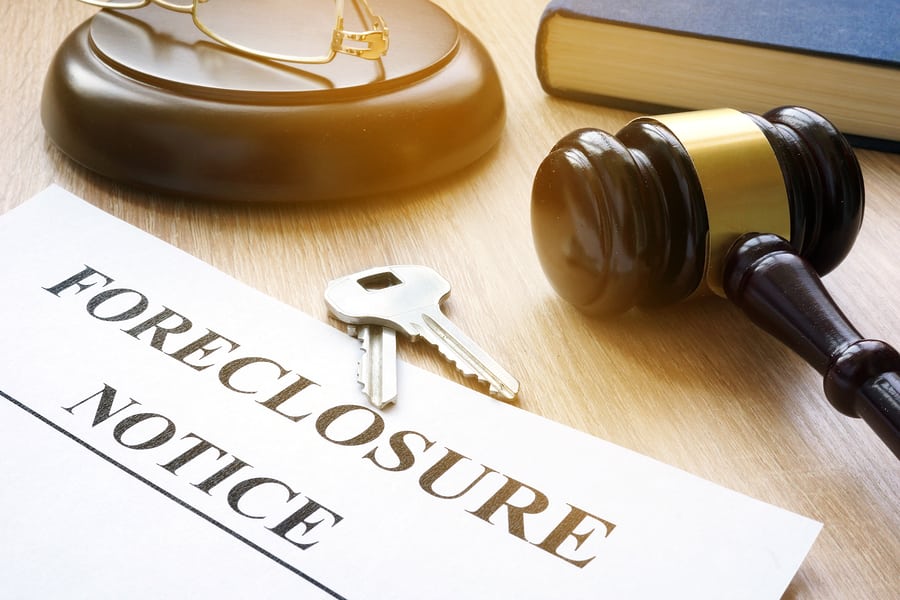Chapter 13 Bankruptcy Attorney
Keep Your Assets. Regain Control.Chapter 13 Bankruptcy
Chapter 13 bankruptcy allows people in debt to set up a repayment plan to pay off all or part of their debt over the course of around 3-5 years from their future income. It is usually most helpful for people who have a guaranteed way to pay for future installments with their income, but who have gotten behind on arrears. It is also helpful for people who want to file for bankruptcy, but do not qualify for a Chapter 7 bankruptcy due to their income level, as well as people who want to protect assets or equity that would not be exempt under a Chapter 7 Bankruptcy.
More Information:
- Understanding The Chapter 13 Repayment Plan: How It Works
- How Chapter 13 Bankruptcy Can Help Stop Foreclosure And Save Your Home
- Chapter 13 Bankruptcy Common Questions
If Chapter 13 is the right move for you, Attorney Mike can help guide you through the process, and get you on the right track toward a debt-free life.
What Exactly is Chapter 13 Bankruptcy? Do I really need it?
Chapter 13 Basics
A Chapter 13 is also commonly referred to as a reorganization bankruptcy. The secured and unsecured debts are restructured over a 36 to 60-month period. Generally, we would file a Chapter 13 if you were behind on a secured debt such as a mortgage, vehicle or IRS.
Who Can File?
Chapter 13 isn’t for everyone. To file Chapter 13, you must:
- be an individual (no corporations or partnerships);
- have a regular income greater than your reasonable living expenses; and
- have liquidated, unsecured debts not exceeding $383,175 and secured debts not exceeding $1,149,525.
Not you? Chapter 7 may be right for you.
8 Steps To Freedom
Consult With Us
Attend Creditor's Meeting
Gather Documents
Get Case Confirmed
Complete Counseling
Receive Discharge
Prepare Petition.
Live Free
I Am With You Every Step Of The Way.
Filing for bankruptcy can seem overwhelming – even discouraging. But it doesn’t have to be. My wife and I will work to make the process as easy as possible for you and for your family. We want to see you back on your feet and living your life. And we’ve helped scores of East Texans get through what they insisted (in the beginning) could never be overcome.
We’re serious when we tell our clients that there really is life after bankruptcy.
So, give us a call. We’re ready to help.

Stop Foreclosure!
Chapter 13 allows you to catch up on payments that you have missed related to your primary residence. If you have received a foreclosure notice, it is important that you do not delay. Call us today to discuss your options.
Get Help With Car Payments.
If your car has recently been repossessed, it may not be too late.
Call us today to discuss your options.
Let Chapter 13 help with the IRS.
It can be scary knowing you owe the federal government and can’t pay. Some taxes can be discharged as unsecured debts, much like a credit card or medical bill. If you have delayed in filing all your necessary taxes, call us today to discuss your options.
How long do I have to make payments in a Chapter 13 bankruptcy?
Can my car or house be saved in a Chapter 13 if I am behind on payments?
If I owe the Internal Revenue Service for income taxes that have not been paid, will Chapter 13 help me?
If I am due an income tax refund while I am in Chapter 13, what happens to my refund?
If I own property that cannot be protected in a Chapter 7 (i.e. non-exempt property), what happens with that property in a Chapter 13?
May I sell my house while I am in a Chapter 13?
Yes, you may sell your home while you are in a Chapter 13 bankruptcy without court approval.
It is not part of the bankruptcy estate.
What is my responsibility with my mortgage?
Your responsibility, once the Chapter 13 is filed, is to make your mortgage payment on time with the first payment that comes due AFTER your case is filed. The trustee will monitor each month to ensure that the payments are made timely.
How do I make my payment to the trustee?
There are several ways that a payment may be made to the trustee:
-If you are employed, we suggest that you have your payment withheld from your
paycheck. A partial payment will be deducted from each check. There is no fee
associated with this method of payment.
-The trustee also uses a service called TFS Billpay in which your monthly payment can
be deducted directly from your bank account. (This service takes about a week for the payment to post to the Chapter 13 account, therefore the payment must be scheduled to be deducted a week before the payment is due.) There is a small fee each month with this
payment.
-Money Gram is also available for payments. There is a fee to make a payment by Money
Gram.
What if I lose my job while I am in a Chapter 13?
A Chapter 13 reorganization is intended for people who have regular, consistent income. The payments must be made to the trustee each month regardless of employment status. There will be
no defense with the judge for not making plan payments. If you lose your job during a Chapter 13, it is imperative that you notify your lawyer.
What is the difference between Chapter 7 bankruptcy and Chapter 13?
The essential difference between a Chapter 7 case and a Chapter 13 case is that in Chapter 7 the debtor’s non-exempt property (if applicable) is liquidated to pay the debtor’s debts, while in Chapter 13 a portion of the debtor’s future income is used to pay as much of that debt as is feasible under the debtor’s unique circumstances.
So in a Chapter 7 case, the debtor loses most of his/her non-exempt assets and receives a Chapter 7 discharge.
In a Chapter 13 case, the debtor usually gets to keep his/her non-exempt property but must pay back as much as their trustee deems feasible for the debtor to pay over the course of 3-5 years.
Chapter 7 cases take less time and are usually less expensive than a Chapter 13 case, but Chapter 13 cases allow a debtor who is above the median income or who has a large number of nonexempt assets to keep their assets and receive the protection of bankruptcy.
Should I file Bankruptcy?
Pros & Cons
Or simply schedule a time to talk with Mike.



